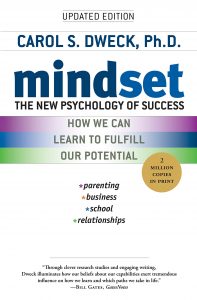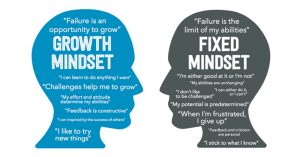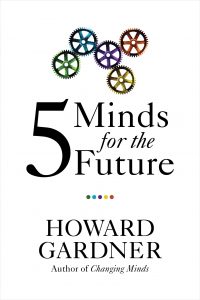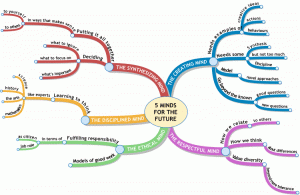Principles of Learning
The work done at Nossal, whether by our teaching staff or our wellbeing team, is strongly based in research. We strive always for best practice, and ensure that the principles upon which this practice is base are understood by all staff through an integrated 2 hours of professional learning time which occurs every Wednesday afternoon. The current work of the school has its foundations in several key models which are relevant to our cohort.
An understanding of the “Differentiated Model of Giftedness and Talent” presented by Francoys Gagne is the starting point for nearly all reflections on the education of the highly able. Gagne’s framework was updated in 2008, and remains one of the most useful ways to think about the place of the educator in developing the talents of able students.
Giftedness is defined as the possession and use of untrained and spontaneously expressed superior natural abilities (called aptitudes or gifts), in at least one ability domain, to the degree that it places the individual at least among the top 10% of their age-peers.
There are four domains of giftedness:
- Intellectual
- Creative
- Socio-affective
- Sensorimotor
Talent is defined as the superior mastery of systematically developed abilities (or skills) and knowledge in at least one field of human activity to a degree that places an individual in at least the upper 10% of age-peers who are or have been active in that field(s).
One cannot be talented without first being gifted, but the opposite is not necessarily true. Gifts may not be nurtured or cultivated through environmental influences to develop into talents. This can be seen as academic underachievement. Talent emerges when there is systematic learning and practise are applied.
The development of talent can be facilitated (or hindered) by the action of two types of catalysts:
- Interpersonal Psychological and Physical (influenced by genetics)
Psychological – motivation, volition, boredom, response to failure, self-management
- Environmental Macroscopic and microscopic
Geography, demographics, sociology, family, socioeconomics, parenting style, school environment
At Nossal we have gifted, talented and highly able students as well as students who work extremely hard to achieve high academic results. We have many students with high ability and aptitude in mathematics and science and average Year 9 standard in English/Humanities, other students with high ability and aptitude in English/Humanities and average Year 9 standard in Maths/Science, and some students (although fewer) who have high aptitude in all areas, including physical and creative activities.
Source: http://www.curriculumsupport.education.nsw.gov.au/policies/gats/assets/pdf/poldmgt2002rtcl.pdf
 All of us have a view about what intelligence (IQ) is; we are all, in some small way, intelligence theorists. In ‘Mindset: How you can fulfil your potential’, Dr Carol Dweck, (2006) outlines how our view of intelligence provides us with an indication of our mindset.
All of us have a view about what intelligence (IQ) is; we are all, in some small way, intelligence theorists. In ‘Mindset: How you can fulfil your potential’, Dr Carol Dweck, (2006) outlines how our view of intelligence provides us with an indication of our mindset.
In Dweck’s work, she provides two definitions:
- Those with fixed mindsets believe that you are born with your IQ and it is unchangeable.
- Those with growth mindsets believes that IQ is malleable; that through work and experiences your IQ grows.
In Nossal’s context, and given the challenges associated with defining and measuring IQ, we find it more useful to frame fixed and growth mindsets around the idea of ability.
Many of our students (and parents and maybe even staff) have fixed mindsets which have arisen because of many factors, including being told that they are intelligent. This has implications for students’ engagement with, and response to, assessment and for their wellbeing. To meet the needs of our student cohort, our assessment and reporting practices have shifted (and will need to shift further) to focus more on progress than achievement than we have done so previously, and our whole school approach to wellbeing will focus on how to further develop growth mindsets in our students. The key characteristics of each mindset are summarised below in Table 1.
Table 1: Key features of mindsets.
| Fixed Mindset | Growth Mindset |
| Ability is fixed and immutable | Ability is malleable and can be incrementally improved through work and experience. |
| Completing assessments (assignments, tests, presentations, etc) is about performing and demonstrating what you know. The motivation is performance. | Completing assessments is about an opportunity to learn and grow. The motivation is learning. |
| High performance proves intelligence; low performance indicates lack of intelligence. | Believe that the level of performance is less important because it is about improvement from whatever point you’re at. |
| Avoid difficult tasks because of a fear of making mistake and therefore being viewed as unintelligent. | Enjoy exposure to difficulty because it is seen as an opportunity for growth. |
| Extrinsically motivated, experience fear and test anxiety, may be reluctant to work hard because they fundamentally believe you either have a high IQ or you don’t. | Intrinsically motivated, show resilience in the face of adversity or a disappointing mark on an assessment, show resilience in the face of adversity or a disappointing mark on an assessment, show more of a willingness to work hard because they believe they have control about what they can learn. |
| Tests and examinations present as a threat because of fear of poor performance and this causes brain and emotional responses that reduce performance. High levels of emotional stress cause a decrease in the thinking part of the brain and reduce cognitive function. | Tests and exams present as another opportunity to learn. Stress is less likely to affect performance in exams because they do not place so much pressure on themselves or have such a fear of poor performance. |
The result is that many students fail to understand that assessment is about learning. They believe it is about performance. Since they think of their ability as inherent, they and their families may also believe that if they receive a low grade, this indicates that they are not smart anymore. In fact, grades are always a reflection of relative performance; in a high-performing cohort, many very able students will be in the lower half of the group when it comes to achievement on a particular task. Encouraging and maintaining a “growth mindset” approach is therefore a vital part of both supporting our students’ sense of their own worth, and of teaching them to focus on one of the most important aspects of learning, their personal progress.

At Nossal we constantly talk with students and parents/guardians about learning being more than just performing well on exams. Through our curriculum and co-curricular programs, we aim to develop students’ talents and skills so that they achieve much more than just a high ATAR in their final year of school. Traditional, directed teaching and rote learning may yield high exam scores but it is not engaging, and our role is to develop young adults who can thrive in the world beyond secondary school, in their chosen tertiary pathway and in the world of work. We aim to help our students to develop 21st Century Learning Skills which include the following:
- Critical thinking, problem solving, reasoning, analysis, interpretation, conceptual synthesis
- Research practices, interrogative questioning
- Creativity, artistry, curiosity, imagination, innovation, personal expression
- Perseverance, self-direction, planning, self-discipline, adaptability, initiative
- Oral and written communication, public speaking and presenting, listening
- Leadership, teamwork, collaboration, cooperation, using virtual workspaces
- Information and communication technology (ICT) literacy, media and internet literacy, visual interpretation, data interpretation and analysis, computer programming
- Civic literacy, social-justice awareness, ethical literacy
- Economic literacy, financial literacy, entrepreneurialism
- Global and multicultural literacy, humanitarianism
- Scientific literacy, technical reasoning, using the scientific method
- Environmental and conservation literacy, ecosystems understanding
- Health and wellness literacy, including nutrition, diet, exercise, and public health and safety
We address the need to develop these capabilities in our students in several ways. Some of these are:
- explicit teaching of the Victorian Curriculum Capabilities <link to VCAA page> in 9Time
- embedded teaching of the Victorian Curriculum Capabilities in domain curricula in Years 9 and 10
- an emphasis on Guided Inquiry and Collaborative Learning structures
- a school culture which foregrounds and enables student voice in such a way as to provide scope for students to develop their leadership and communication skills
- an ICT rich environment which enables and enriches online collaboration and learning
 At Nossal High School every student is encouraged to explore their studies in a new light. Our original framework was founded on Harvard University psychologist Howard Gardner’s ‘Five Minds for the Future’ philosophy. The school’s curriculum was initially built on the philosophy that future leaders need to develop certain cognitive abilities, which Gardner defines as five ‘minds’: the disciplined mind, the synthesising mind, the creative mind, the respectful mind and the ethical mind. While the curriculum has grown and changed in the ensuing years of the school’s operation, students are still encouraged to situate their thinking within this framework, and to categorise their co-curricular engagement (in particular) under these headings through their involvement in the Sir Gustav Nossal Medallion program. In this way, students are encouraged to move beyond limited definitions of learning as purely academic in nature.
At Nossal High School every student is encouraged to explore their studies in a new light. Our original framework was founded on Harvard University psychologist Howard Gardner’s ‘Five Minds for the Future’ philosophy. The school’s curriculum was initially built on the philosophy that future leaders need to develop certain cognitive abilities, which Gardner defines as five ‘minds’: the disciplined mind, the synthesising mind, the creative mind, the respectful mind and the ethical mind. While the curriculum has grown and changed in the ensuing years of the school’s operation, students are still encouraged to situate their thinking within this framework, and to categorise their co-curricular engagement (in particular) under these headings through their involvement in the Sir Gustav Nossal Medallion program. In this way, students are encouraged to move beyond limited definitions of learning as purely academic in nature.
Gardner contends:
“that we live in a time of relentless change. The only thing that’s certain is that new challenges and opportunities will emerge that are virtually unimaginable today. How can we know which skills will be required to succeed?”

In Five Minds for the Future, author Howard Gardner shows how we will each need to master “five minds” that the fast-paced future will demand. Gardner outlines the specific cognitive abilities that will be sought and cultivated by leaders in the years ahead. They include:
- The Disciplinary Mind: the mastery of major schools of thought, including science, mathematics, and history, and of at least one professional craft.
- The Synthesising Mind: the ability to integrate ideas from different disciplines or spheres into a coherent whole and to communicate that integration to others.
- The Creative Mind: the capacity to uncover and clarify new problems, questions and phenomena.
- The Respectful Mind: awareness of and appreciation for differences among human beings and human groups.
- The Ethical Mind: fulfilment of one’s responsibilities as a worker and as a citizen
Gardner, Howard, (2008) Five Minds for the Future, Harvard Business School Publishing, Boston, U.S.A.
Additional References
Two Australian-based papers that also inform our work are from the Foundation for Young Australians (FYA):The New Basics (2016) and The New Work Mindset (2016).
https://www.fya.org.au/wp-content/uploads/2016/11/The-New-Work-Mindset.pdf



